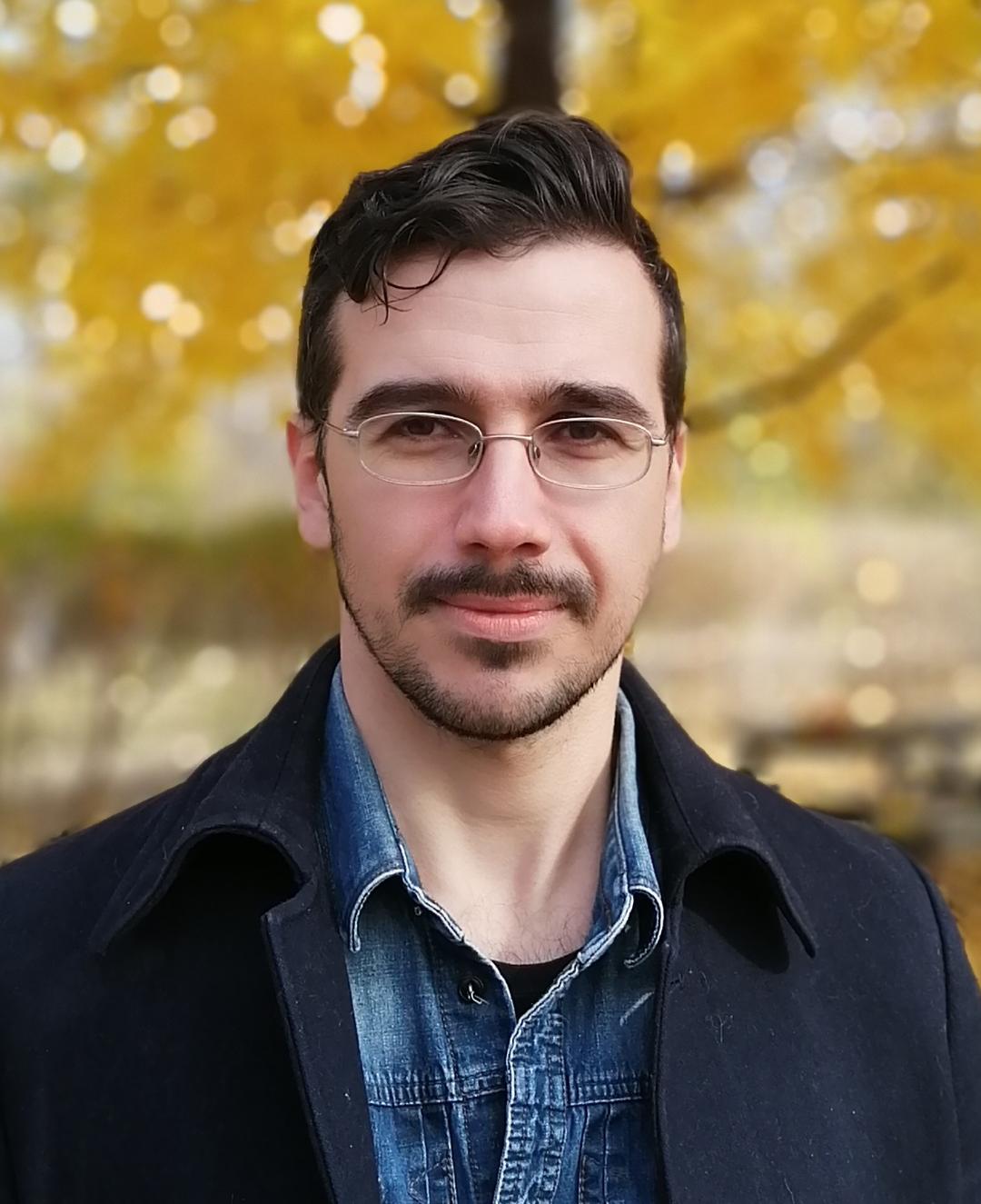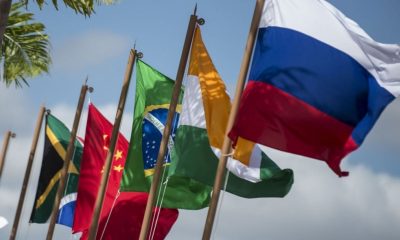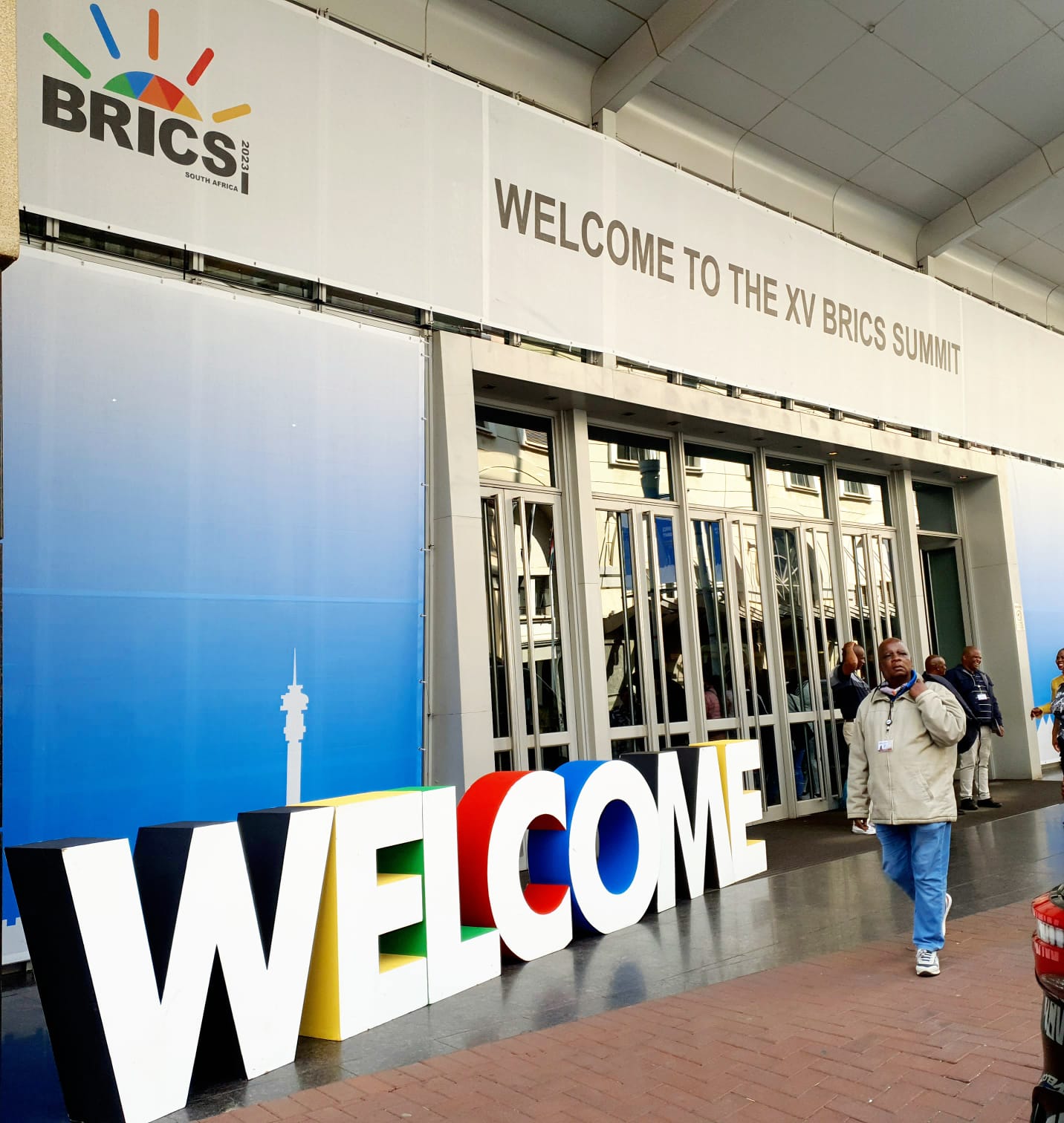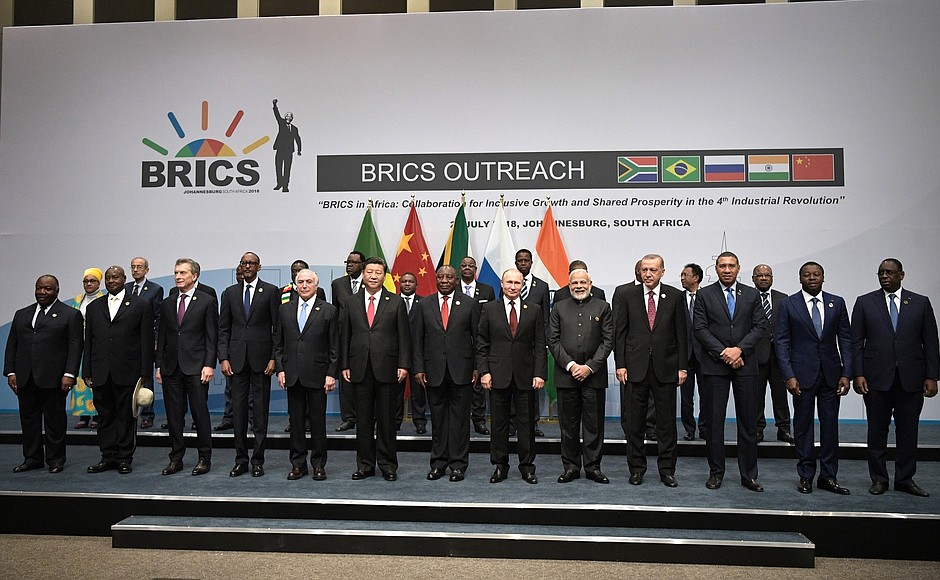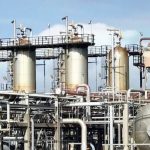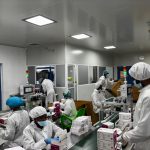Health
China Strengthening its Diplomacy in Africa’s Health Sector
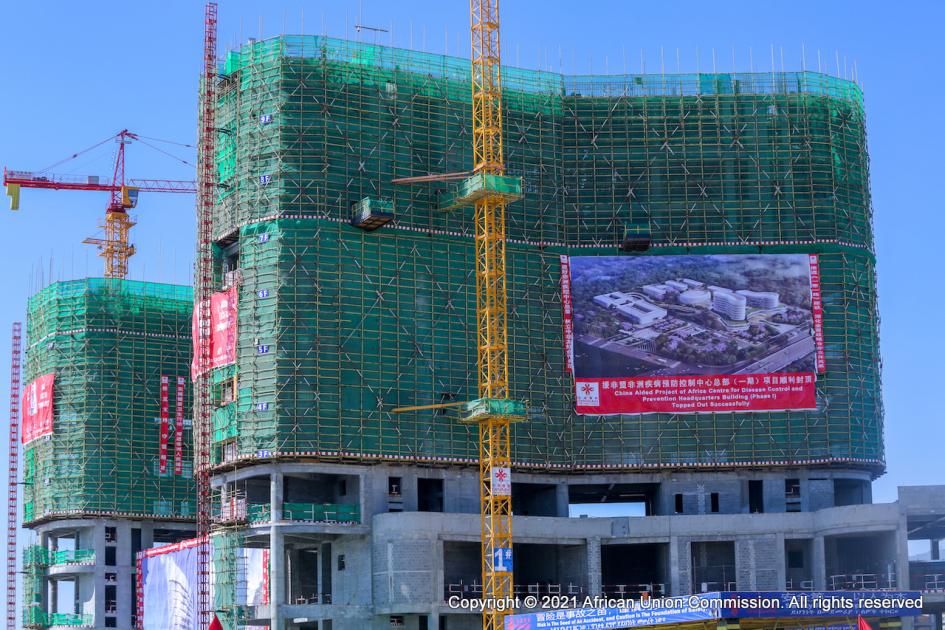
By Kester Kenn Klomegah
China and Africa will always be a community of a shared future. At least, its policy is strategically focused on addressing sustainable development, and China has indeed proved, over the years, in many aspects of dealing with Africa.
Results are seen especially with all kinds of infrastructure that have been built these years. And, of course, the appreciable results reflect the level of commitment to the action plans arrived at triannual summits.
In its white paper says that China’s approach involves basic principles including upholding a people-oriented approach in pursuing practical cooperation with efficiency. In its cooperation with Africa, it gives priority to the interests and wellbeing of the peoples of Africa and works to their benefit.
China is committed to fully honouring the promises it has made to its African friends. Developing solidarity and cooperation with African countries has been the cornerstone of China’s foreign policy. In the fight for coronavirus, China will deliver one billion vaccines to Africa – with a population of 1.3 billion. This indicates further its efforts at promoting cooperation in basic healthcare delivery.
With the outbreak of coronavirus in December 2019, China was the first country in the world to convene an anti-pandemic summit with Africa. It has further called on international partners to increase support to Africa, while itself providing at various times medicament including vaccines to many African countries.
Quite recently during the last summit held in November, China’s President Xi Jinping elaborated on important policies on advancing China-Africa cooperation and strengthening cooperation amid the pandemic. In order to support, he promised one billion doses. It has made deliveries in many African countries.
China actively honours its commitment to make vaccines a global public good. At the time when Chinese vaccines had just reached the market and domestic supply was tight, China began to supply vaccines to Africa in support of its battle against the pandemic.
By November 2021, China had provided over 1.7 billion doses of the Covid-19 vaccine to more than 110 countries and organizations, including 50 African countries and the AU Commission, and is striving to provide an aggregate total of – two billion doses by the end of 2021. In addition, it donated US$100 million to COVAX, which aims at ensuring all countries have access to a safe, effective vaccine.
COVAX is a global programme coordinated by the World Health Organization in partnership with GAVI – the Vaccine Alliance, the Center for Epidemics Preparedness Innovations and many others. Producing countries are free to donate vaccines through COVAX.
Chinese firms are actively engaging in joint vaccine production in Africa with local firms, helping countries, in accordance with their wishes, to realize localized vaccine production. According to reports, Chinese firms have started localized production in Egypt and signed cooperative agreements with Morocco and Algeria.
After the Covid-19 struck, in coordination with local governments, enterprises and social organizations, China has provided emergency anti-pandemic supplies – including 120 batches of nucleic test reagents, protective gears, masks, eye protectors and ventilators – to 53 African countries and the AU based on their respective needs, with these emergency supplies reaching almost all areas across the continent. It has, in addition, sent medical teams to a number of countries on the continent.
China has also actively shared its anti-epidemic experience with African countries and dispatched anti-epidemic medical expert groups or short-term anti-epidemic medical teams to 17 African countries to fight the epidemic alongside local people.
It has pushed for the earlier start of the construction of the headquarters of the Africa Center for Disease Control and Prevention (Africa CDC), a project assisted by China. This shows another huge step in undertaking the building of the headquarters of the Africa CDC located in Addis Ababa, Ethiopia.
At the 2018 Beijing Summit and the 7th Ministerial Conference of the Forum on China – Africa Cooperation (FOCAC) held in Beijing, the Government of China expressed its commitment to support the building of the Africa CDC HQ. African leaders welcomed this with appreciation and committed to supporting the realization of the project.
Located in the African Village, south of Addis Ababa, the new site covers an area of 90,000m2 with a total construction area of nearly 40,000m2. When completed the building will include an emergency operation centre, a data centre, a laboratory, a resource centre, briefing rooms, a training centre, a conference centre, offices, and expatriate apartments, all to be constructed, furnished and equipped by the Government of China.
In accordance with a number of agreements concluded between the AU and the Government of China, the AU Commission and the Ministry of Commerce of the People’s Republic of China signed the Implementation Agreement on the Africa CDC HQ’s building project in July 2020.
The headquarters building is expected to become one of the best-equipped centres for disease control in Africa, allowing the Africa CDC to play its role as the technical institution coordinating disease prevention, surveillance and control in the continent, in partnership with the national public health institutes and ministries of health of Member States.
H.E. Amira Elfadil Mohamed, Commissioner for Humanitarian Affairs and Social Development and H.E. Ambassador Liu Yuxi, Head of the Mission of the People’s Republic of China to Ethiopia attended the ceremony on behalf of the African Union Commission and the Government of the People’s Republic of China respectively.
Speaking at the ceremony, Commissioner Elfadil said the completion of the first phase marks 45 per cent of the total construction. “While celebrating our success in reaching 45% of total project completion within an impressive record of 348 days. The African Union would like to express its sincere appreciation to the Government of the People Republic of China for funding the whole project, and to all the stakeholders who have played their respective roles and tirelessly assisted the team in achieving its target,” she said.
In his remarks, H.E. Ambassador Liu Yuxi underlined the close China-Africa partnership. “As we speak, the Covid-19 pandemic is still wreaking havoc across the globe. However, it cannot prevent China-Africa cooperation from growing in depth and substance. China and Africa stand together with mutual assistance, team up amid difficulties and treat each other wholeheartedly.”
He added that the Africa CDC building itself is a manifestation of beneficial and practical work for the African people. China will proceed to try its utmost to assist African countries in responding to the pandemic and restoring economic and social development. By combating Covid-19, China and Africa have withstood severe challenges, helping each other and fighting side by side to defeat the pandemic through solidarity and cooperation.
China is participating in the African Vaccine Manufacturing Partnership (AVMP) launched by the African Union in April 2021. This Continental Vaccine Manufacturing Vision is “to ensure that Africa has timely access to vaccines to protect public health security, by establishing a sustainable vaccine development and manufacturing ecosystem in Africa.”
It is also a splendid testimony of China unflinching support for Africa. “Together, we have written a splendid chapter of mutual assistance amidst complex changes, and set a shining example for building a new type of international relations,” Xi said later in one of his speeches, and emphasizing the principles of China’s Africa policy as pursuing the greater good and shared interests.
China and Africa jointly launched an Initiative on Partnership for Africa’s Development this year. It emphasizes that all countries should carry out cooperation with Africa on the premise of respecting Africa’s sovereignty and listening to Africa’s voice, give full play to their respective advantages and pool efforts in an effective way, and do more beneficial and practical work for the well-being of the African people.
China and Africa are working closely. At the initiative of both China and African countries, FOCAC was inaugurated at its first Ministerial Conference in Beijing in October 2000, with the goals of responding to the challenges emerging from economic globalization and seeking common development. FOCAC now has 55 members, comprising China, the 53 African countries that have diplomatic relations with China, and the AU Commission.
Beyond the borders of Africa, China expresses and appeals for upscaling the development and improving the basic needs of the underprivileged peoples in Africa. While attending the General Debate of the 76th Session of The United Nations General Assembly, Chinese President Xi Jinping proposed the Global Development Initiative, calling on the international community to accelerate the implementation of the UN 2030 Agenda for Sustainable Development.
Health
Local Packaging of WHO-Approved HIV Tests, a Shift in Africa’s Diagnostic Capacity
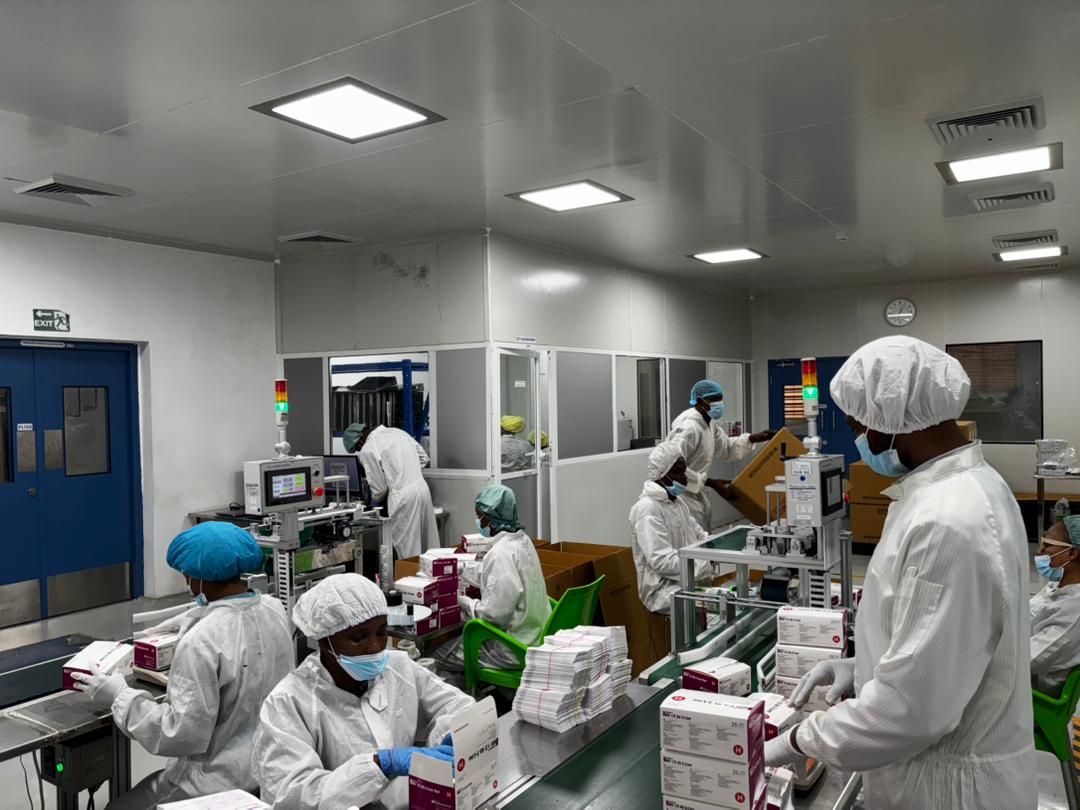
By Chidinma Onwumere
Nigeria’s public health system has taken a further step toward strengthening diagnostic self-reliance with the local packaging of a WHO pre-qualified HIV Rapid Diagnostic Test (RDT) at a facility in Lagos. The development highlights a broader shift in how essential health commodities are produced, supplied, and regulated across the continent.
The HIV test in question, the Standard Q HIV 1 & 2 RDT was previously manufactured and distributed as a fully imported finished product. Through regulatory approval granted under the WHO Pre-Qualification Change Notification, local packaging is now authorised at Colexa Biosensor, a Nigerian facility, making it the only site in Africa currently approved to package a WHO-prequalified HIV RDT.
While the technical designation may appear procedural, its implications are significant. WHO pre-qualification is a globally recognised quality benchmark used by national governments and international donors to guide procurement decisions for public health programs. Any change to a pre-qualified product, including where it is packaged, requires rigorous assessment to ensure that quality, safety, and performance remain unchanged.
For Nigeria, the approval represents more than a regulatory milestone. It addresses a longstanding vulnerability in health systems across Africa: dependence on imported diagnostics and the fragility of global supply chains. During recent global disruptions, including the COVID-19 pandemic, many countries experienced delays in access to essential medical commodities, exposing the risks of over-reliance on distant manufacturing hubs.
By enabling local packaging of a WHO-approved HIV test, Nigeria improves its ability to respond more quickly to demand fluctuations, reduce lead times, and maintain continuity of supply for national HIV programs. The test has been evaluated and approved by the Federal Ministry of Health and the National AIDS and STI Control Programme and is listed on the National HIV Testing Algorithm, making it eligible for procurement by government agencies and international partners supporting HIV services in the country.
From a programme perspective, inclusion on the national algorithm is critical. It ensures that test kits used in public health settings meet required performance standards and align with national testing strategies. It also allows donor-funded programs, such as those supported by multilateral agencies and global health initiatives, to procure the product locally while maintaining compliance with international quality requirements.
The shift toward local packaging also brings economic and institutional benefits. Shorter supply chains can lower logistics costs, improve predictability, and create opportunities for skills transfer in quality management, regulatory compliance, and manufacturing operations. Importantly, local involvement does not replace global standards; rather, it requires demonstrable adherence to them. WHO-approved local packaging is contingent on standardised processes, full traceability, and the ability to consistently prove compliance through documentation and audits.
Health policy experts note that such approvals challenge persistent assumptions that high-quality diagnostic manufacturing must occur outside Africa. Instead, they suggest a growing recognition that African facilities, when supported by strong regulatory oversight and technical partnerships, can meet the same benchmarks applied globally.
Beyond HIV diagnostics, the Lagos facility also produces blood glucose meters and test strips, reflecting a parallel focus on non-communicable diseases such as diabetes, which are rising rapidly across Nigeria and the continent. This dual focus on communicable and non-communicable diseases aligns with evolving health priorities, as African countries face a growing burden of chronic illness alongside infectious diseases.
The broader significance of this development lies in its potential scalability. While the immediate impact is national, the regulatory pathway demonstrated in Nigeria could inform similar initiatives elsewhere in Africa. Regional health bodies and policymakers have long advocated for greater local production of essential medical products as part of health security and economic development strategies. However, progress has often been constrained by regulatory complexity, quality assurance requirements, and limited technical capacity.
By meeting WHO pre-qualification standards for local packaging, Nigeria offers a practical example of how these barriers can be addressed. It also underscores the importance of collaboration between global manufacturers, local operators, regulators, and international agencies in building sustainable diagnostic capacity.
As demand for HIV testing remains high, particularly among key populations and in underserved areas, reliable access to quality-assured diagnostics remains central to prevention, treatment, and surveillance efforts. Local packaging does not eliminate the need for global supply chains, but it can make them more resilient, responsive, and context-appropriate.
More broadly, the development contributes to an ongoing debate about how African countries can move beyond consumption toward greater participation in the value chain of global health products. In this sense, the local packaging of a WHO-approved HIV test is less about a single facility or product and more about what it represents: a gradual but meaningful shift toward health system self-reliance grounded in global standards
As African governments and development partners continue to prioritise pandemic preparedness, universal health coverage, and supply chain resilience, such models may play an increasingly important role in shaping the future of healthcare delivery on the continent.
Health
Interswitch Takes eClinic Electronic Medical Records to Abia
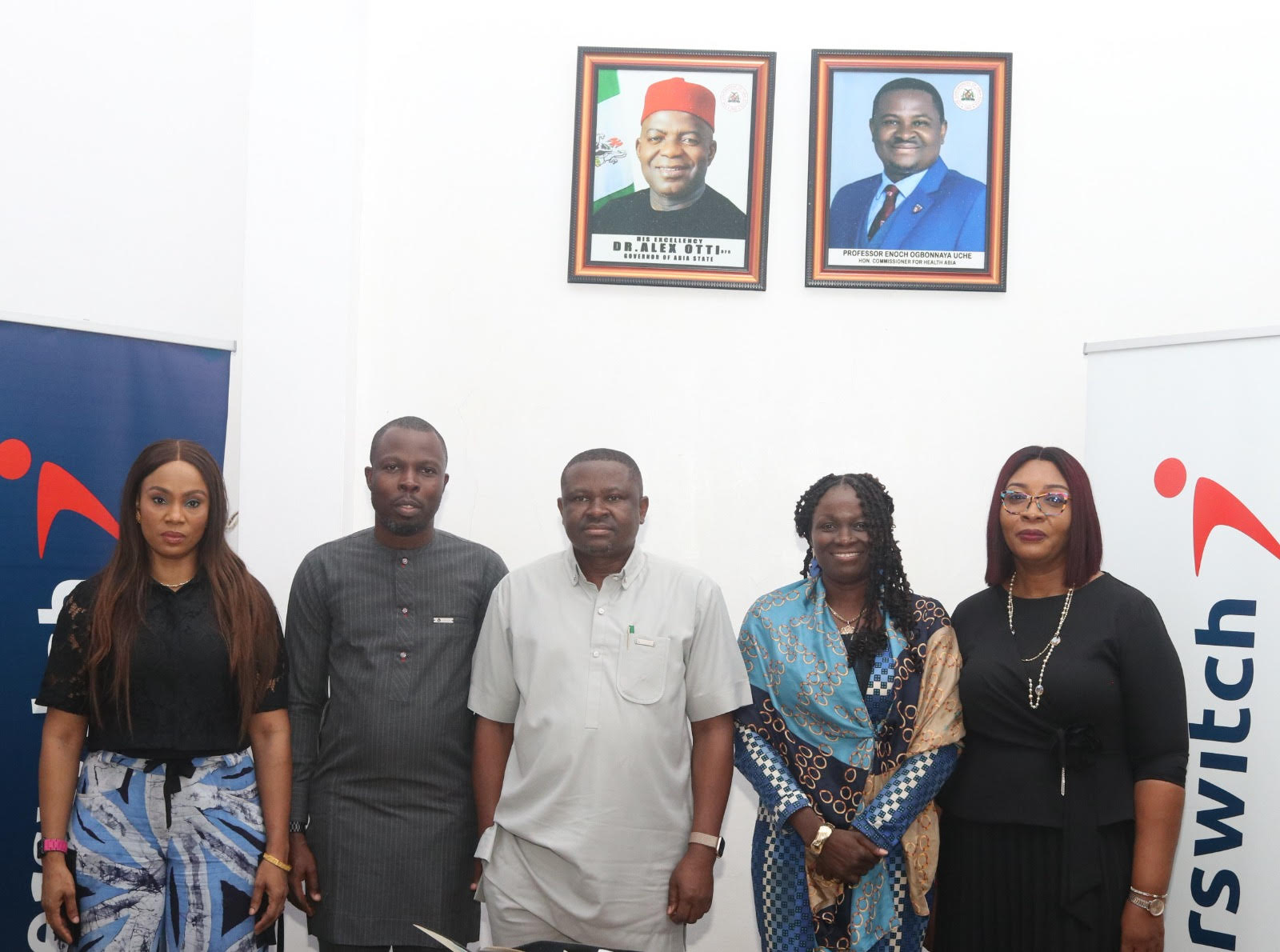
By Aduragbemi Omiyale
To boost public healthcare delivery, the health-tech subsidiary of Interswitch, Interswitch eClat, has deployed its eClinic Electronic Medical Records (EMR) platform across public health facilities in Abia State.
This would be done in phases, with the kick-off phase to span six public health facilities, including three primary healthcare centres, two secondary facilities, and one tertiary hospital, creating an end-to-end digital care pathway that strengthens patient referrals, supports continuity of care, and enables data-driven decision-making across all levels of service delivery.
The EMR solution is built to reduce patient waiting times, strengthen referral processes, and ensure the secure handling of both clinical and administrative data, supported by a hybrid infrastructure that enables local hosting with cloud-based backup.
Officials of the leading African technology company held talks with the state government, especially from the Abia State Ministry of Health in Umuahia.
They discussed the implementation framework, and expected outcomes of the proposed eClinic deployment.
Discussions focused on deploying Interswitch’s eClinic solution in alignment with Abia State’s broader healthcare reform agenda under the current government’s administration, particularly the transition from fragmented, paper-based systems to secure, interoperable digital platforms across public health facilities.
“The Ministry of Health in Abia State is excited about the digitisation of health facilities, starting with Interswitch’s eClinic pilot phase involving three primary, two secondary, and one tertiary health centre.
“This initiative will enhance efficiency, accountability, and patient care by linking records across different levels of care.
“Global evidence shows that digital health improves access, reduces the cost of care, and maximises human resources while personalising services for our people.
“This partnership with Interswitch represents a key deliverable for this administration and aligns with the Governor’s vision for a modern, technology-driven health system,” the Commissioner for Health for Abia State, Mr Enoch Ogbonnaya Uche, said.
“Abia State has demonstrated a strong commitment to innovation and system reform. The alignment of the state’s healthcare priorities with national health digitisation objectives creates a solid foundation for meaningful progress.
“Interswitch’s eClinic platform is designed to improve hospital operations by automating workflows, securing patient data, and providing healthcare managers with reliable insights to guide decisions.
“Beyond improving patient experience, it supports stronger revenue tracking, operational efficiency, and accountability. Our focus is to ensure the success of this pilot phase and deliver tangible improvements across productivity, service delivery, and patient satisfaction,” the Vice President for Health Ecosystem (Public Sector) at Interswitch, Mr Babatunde Fadeyi, stated.
Health
Polaris Bank Sponsors Free Breast, Prostate Cancer Screenings
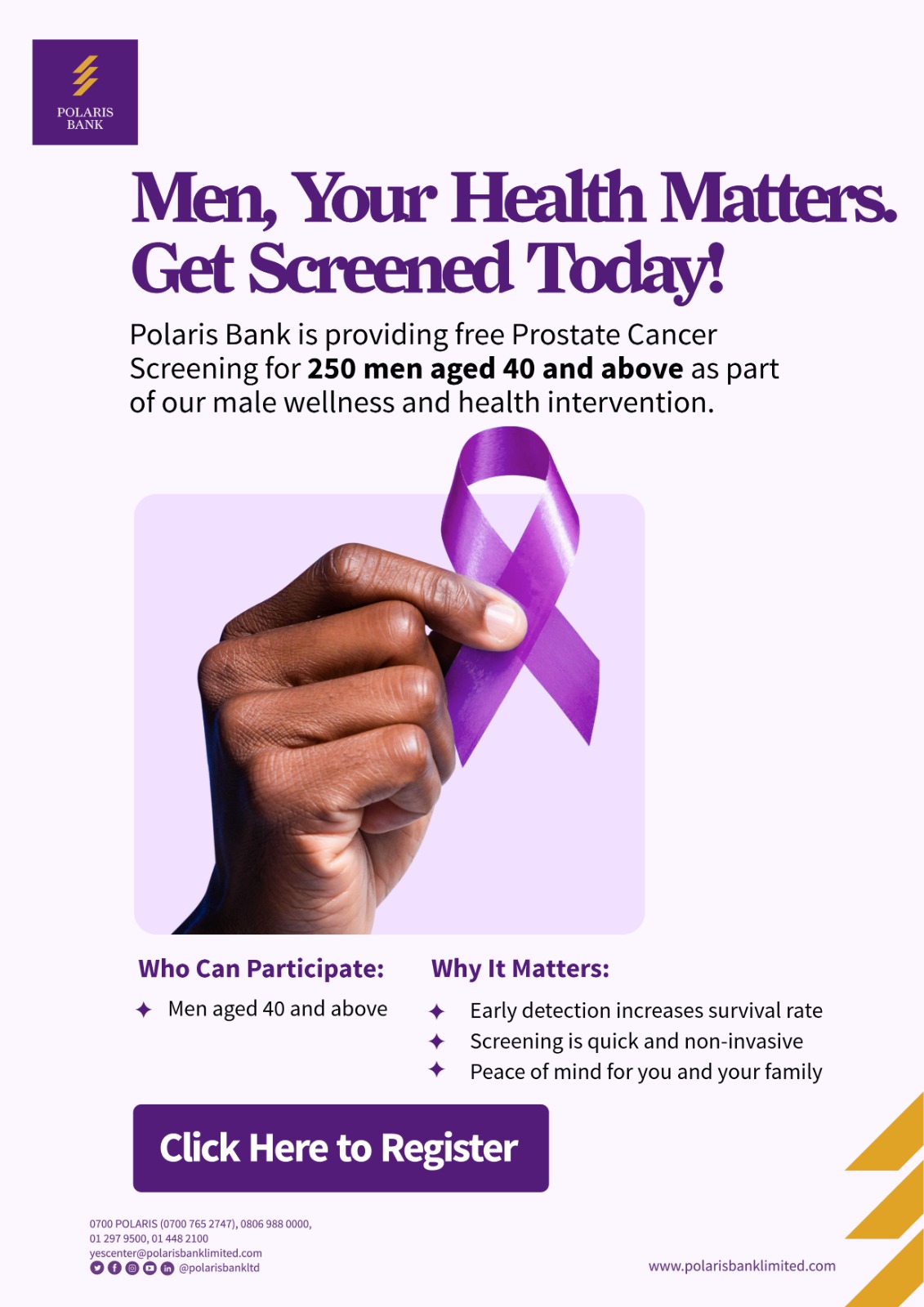
By Modupe Gbadeyanka
To commemorate World Cancer Day observed on Wednesday, February 4, 2026, Polaris Bank Limited is bankrolling free screenings for breast and prostate cancers across the country.
The financial institution partnered with a non-governmental organization (NGO) known as Care Organization and Public Enlightenment (COPE) for this initiative.
At least 100 women would be screened during the exercise, scheduled for Saturday, February 21, 2026, at the C.O.P.E Centre on 39B, Adeniyi Jones Avenue, Ikeja, Lagos, from 10:00 am to 2:00 pm.
The exercise will be conducted by trained health professionals and volunteers, ensuring participants receive both screening services and educational guidance on cancer prevention, self-examination, and follow-up care.
To participate in the free breast cancer screening programme, the applicants must be women, must be Polaris Bank account holders, and must have registered ahead of the day via bit.ly/BCS2026, with selection based on early and confirmed submissions.
Polaris Bank said the initiative was designed to promote awareness, screening, early detection, and preventive care, reinforcing its belief that access to health services is a critical foundation for individual and economic well-being.
The organization is already supporting an on-going free prostate cancer screening programme for 250 men aged 40 years and above across Nigeria.
The prostate cancer screening is being conducted at the Men’s Clinic, situated at 18, Commercial Avenue, Sabo, Yaba, Lagos, providing accessible, professional medical support for male participants seeking early detection and preventive care for prostate cancer.
Both initiatives (free breast and prostate cancer screenings) directly aligns with the United Nations Sustainable Development Goals, particularly SDG 3 (Good Health and Well-being) through improved access to preventive healthcare and early detection services, SDG 5 (Gender Equality) by prioritizing women’s health and empowerment, and SDG 17 (Partnerships for the Goals) through strategic collaboration with civil society organizations such as C.O.P.E to deliver community-centered impact.
Educational materials, community engagement sessions, and digital awareness campaigns will be deployed to reinforce key messages around early detection, lifestyle choices, and the importance of regular medical check-ups.
The Head of Brand Management and Corporate Communications for Polaris Bank, Mr Rasheed Bolarinwa, emphasised that early detection remains one of the most effective tools in the fight against cancer.
-

 Feature/OPED6 years ago
Feature/OPED6 years agoDavos was Different this year
-
Travel/Tourism10 years ago
Lagos Seals Western Lodge Hotel In Ikorodu
-

 Showbiz3 years ago
Showbiz3 years agoEstranged Lover Releases Videos of Empress Njamah Bathing
-

 Banking8 years ago
Banking8 years agoSort Codes of GTBank Branches in Nigeria
-

 Economy3 years ago
Economy3 years agoSubsidy Removal: CNG at N130 Per Litre Cheaper Than Petrol—IPMAN
-

 Banking3 years ago
Banking3 years agoSort Codes of UBA Branches in Nigeria
-

 Banking3 years ago
Banking3 years agoFirst Bank Announces Planned Downtime
-

 Sports3 years ago
Sports3 years agoHighest Paid Nigerian Footballer – How Much Do Nigerian Footballers Earn


